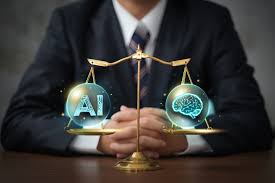By Prof. (Dr.) Sujata Bali Dean, IILM School of Law, Gurugram
As I sat with my thoughts and my phone to write about how AI can interact with legal education, my first impulse was to prompt a chatbot to write what it knows, and it was an afterthought to use my grey cells (human intelligence) and enjoy the process of writing.
So, let’s try it.
Scenario 1: (I admit that the temptation was too much to resist and I used a prompt to generate an answer): a popular chatbot told me that it will help in personalised learning, legal research, writing practice, simulations, freeing up time and possibly do everything except learn the law.
Scenario 2: I googled. (Old habits die hard.)
After the first page of google results and one research paper later, I knew better, AI will not substitute, or at least be able to challenge human lawyers just yet.
Scenario 3: So how can AI help the legal fraternity?
Here are some possibilities
- Saving time in learning established legal principles. Yes, rather than series of lectures, AI prompts can help in clearing doubts regarding a simple legal concept.
- Promise of speedy justice. Faster processing of documents should help move court cases faster.
- Learning anytime, anywhere. Students won’t need to wait for lectures for initiation and discussion on a legal topic.
- Drafting practices. Students won’t have to wait for a sneak peek to a legal document during internships. They can practice the theory with AI.
- Learning international laws and studying it inter disciplinarily . With law being a social science now greatly affected by technological advancements, studying law with other disciplines becomes quintessential. AI can help develop a holistic understanding of law in a dynamic world.
What is it with AI that I have doubts about?
- AI will be as good as its sources, and not everything in the legal world has been documented thoroughly or applies universally.
- Can legal values like justice, fairness, equity be understood by artificial intelligence?
- Case result prediction and a judge’s prediction through AI may do more harm than good to legal education by dissuading a different line of argument.
- Existing human biases are likely to afflict AI deeply, if not dealt with consciously.
- Learners with access to better AI, to get better learning of law, seem unjust in itself.
Final thought: use AI like any other tool to help learn law, however, remember just because you have hammer, doesn’t mean that every problem is a nail.



